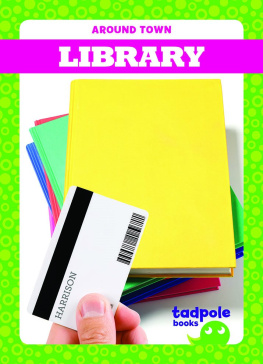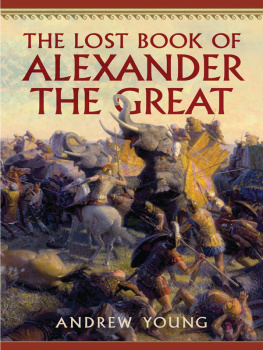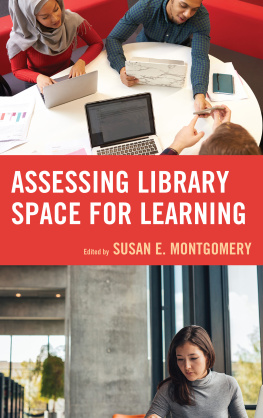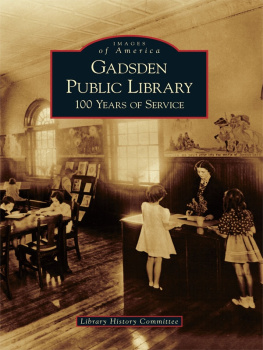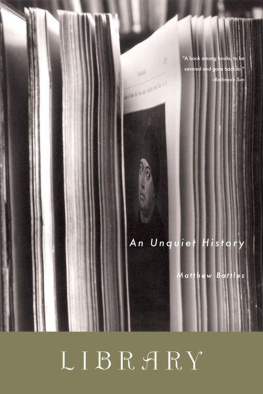I LLUSTRATED BY R OBINA M ACINTYRE M ARSHALL
CLARION BOOKS/NEW YORK
Many thanks to Professor Farland H. Stanley Jr. of the University of Oklahoma
Classics Department for reviewing the manuscript. Thanks also to the staff of
the San Jose State University Library and the staff of the King County Library
in Bellevue, Washington, for their help with my research.
Clarion Books
a Houghton Mifflin Company imprint
215 Park Avenue South, New York, NY 10003
Text copyright 2003 by Kelly Trumble
Illustrations copyright 2003 by Robina MacIntyre Marshall
The illustrations were executed in watercolor and gouache on Arches hot-pressed paper.
The text was set in 13.5-point Caslon Book.
All rights reserved.
For information about permission to reproduce selections from this book,
write to Permissions, Houghton Mifflin Company, 215 Park Avenue South,
New York, NY 10003.
Printed in China
www.houghtonmifflinbooks.com
Library of Congress Cataloging-in-Publication Data
Trumble, Kelly.
The Library of Alexandria / by Kelly Trumble ; illustrated by Robina MacIntyre Marshall.
p. cm.
Summary: An introduction to the largest and most famous library in the ancient world,
discussing its construction in Alexandria, Egypt, its vast collections, rivalry with the
Pergamum Library, famous scholars, and destruction by fire.
Includes bibliographical references and index.
ISBN 0-395-75832-7
1. Alexandrian LibraryJuvenile literature. [1. Alexandrian Library.]
I. Marshall, Robina MacIntyre, ill. II. Title.
Z722.5.T783 2003
027.032dc21 2003000150
SCP 10 9 8 7 6 5 4 3 2 1
T O MY MOTHER
K. T.
T O D INAH AND B EN
R. M. M.
CONTENTS
1 A CITY OF LEARNING 1
2 COLLECTING BOOKS 7
3 PERGAMUM 11
4 ASTRONOMY 17
5 GEOGRAPHY 23
6 MATHEMATICS 29
7 MEDICINE 35
8 DECLINE AND DESTRUCTION 41
9 THE FATE OF THE LIBRARY OF ALEXANDRIA 47
Map: The Empire of Alexander the Great 52
Map: The Roman Empire at Its Largest 54
Ptolemy Family Tree (Partial) 57
Sites in Ancient Alexandria 58
Names and Terms 63
Selected Bibliography 68
Suggested Reading 69
Index 70
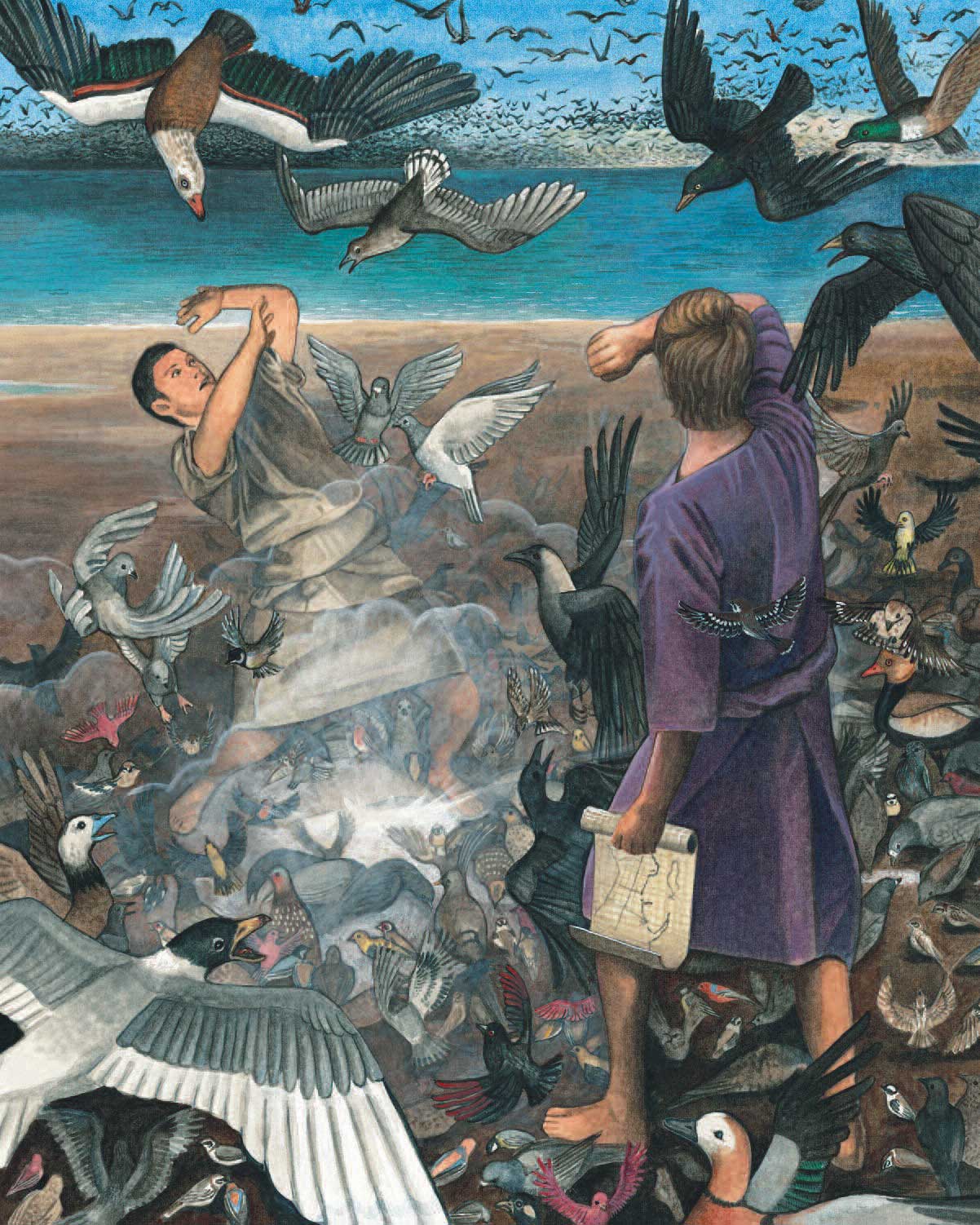
The founding of Alexandria begins with an omen.
1. A City Of Learning
A S ALEXANDER LAY SLEEPING ONE NIGHT, the Greek poet Homer appeared in his dreams and recited a verse:
Now, there is an island in the much-dashing sea,
In front of Egypt; Pharos is what men call it.
Alexander had wanted to build a great city in Egypt, and now he knew just where to do it. He immediately went to the island of Pharos. He ordered a city to be planned on the mainland, with a causeway connecting the city to the island. But the architects had no chalk for marking the lines of the city, so they used flour instead. Suddenly, an infinite number of birds rose like a great black cloud from the nearby waters. They swooped down and ate all the flour. Alexander was troubled by this omen. But the prophets told him the omen was a good one. It meant the city founded there by Alexander would be one of such abundance that men from many nations would flock to it.
This legend of the founding of the city of Alexandria has a grain of truth. Alexander the Great did indeed found Alexandria, and it did become a city of abundance: an abundance of books and learning opportunities, which attracted great scientists from many nations.
Alexander the Great was a Macedonian king who lived in the fourth century B.C. He conquered the great city-states of Greece, whose culture he admired. Then he conquered the lands from Greece to Egypt to India, spreading Greek culture and building the greatest empire yet known. Throughout his empire Alexander investigated the geography and founded many cities.
He saw the potential for a great city at the site of the Egyptian village of Rhakotis, on the coast of the Mediterranean Sea. A causeway between the new city and the island of Pharos would create two harbors. To the south of the city Lake Mareotis would provide fresh water and access to the Nile. The climate would be ideal for a harbor city. In 331 B.C. , Alexander ordered the city of Alexandria to be built there.
But Alexander the Great never saw the Egyptian city that would bear his name. He died in 323 B.C. , only thirty-three years old.
Alexander's empire was divided among his generals. Instead of ruling together, each general soon declared himself king of his own piece of the empire. The general Ptolemy became the king of Egypt. Ptolemy moved the capital from the old city of Memphis to the new city of Alexandria.
Ptolemy was a man who respected learning, especially in science. He decided to make Alexandria a great city of learning and culture. At its center would be the most famous library in the ancient world, the Library of Alexandria.
It was probably Ptolemy's adviser Demetrius of Phaleron who suggested that a great research center be built. Demetrius worked closely with Ptolemy to create the Mouseion, "the shrine of the Muses." In Greek mythology, the Muses were goddesses who gave inspiration to scientists, artists, and philosophers. The Mouseion was also a great research center, similar to today's universities, that attracted learned men from many places.
Alexander the Great (left) fights the Persians.
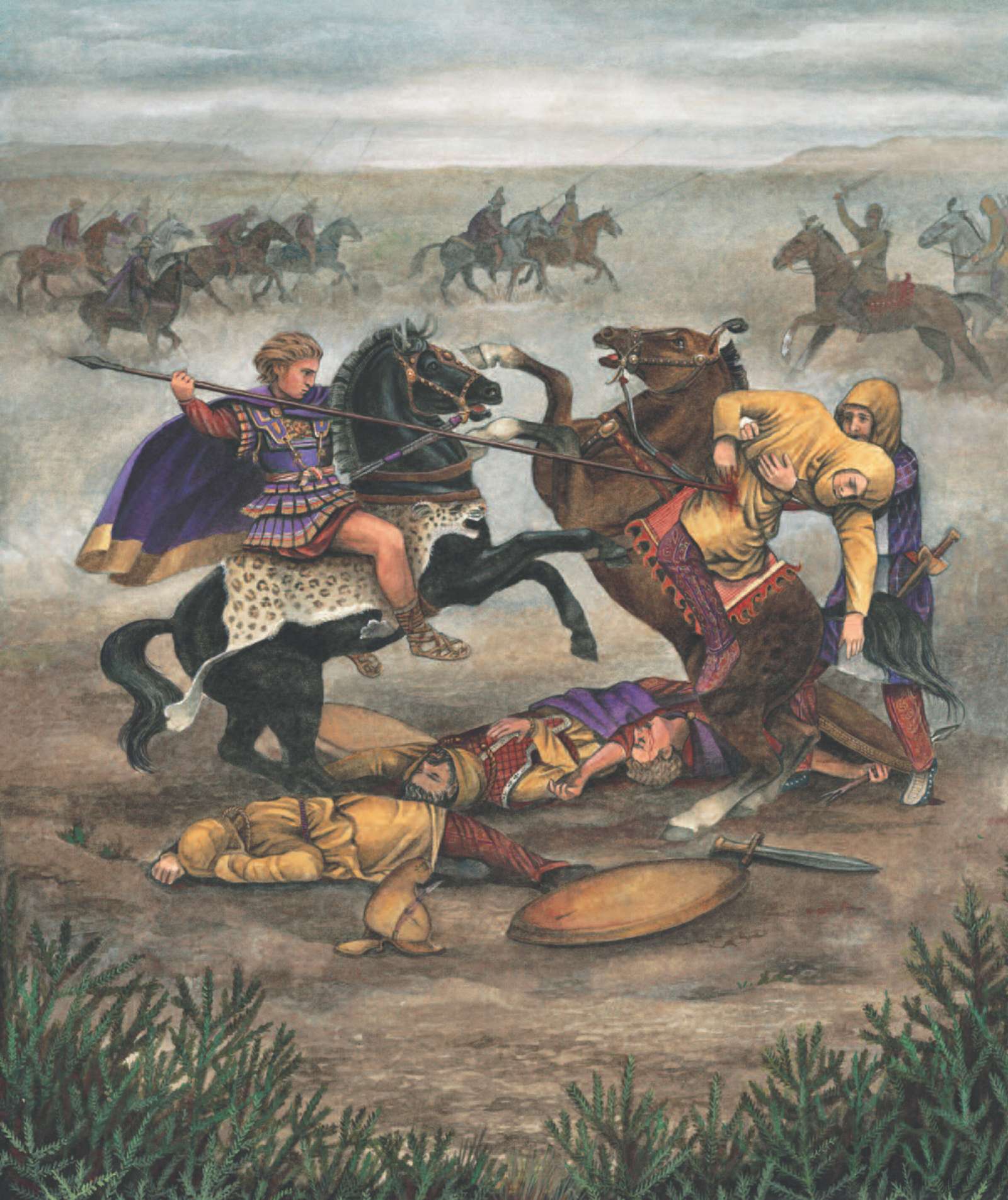
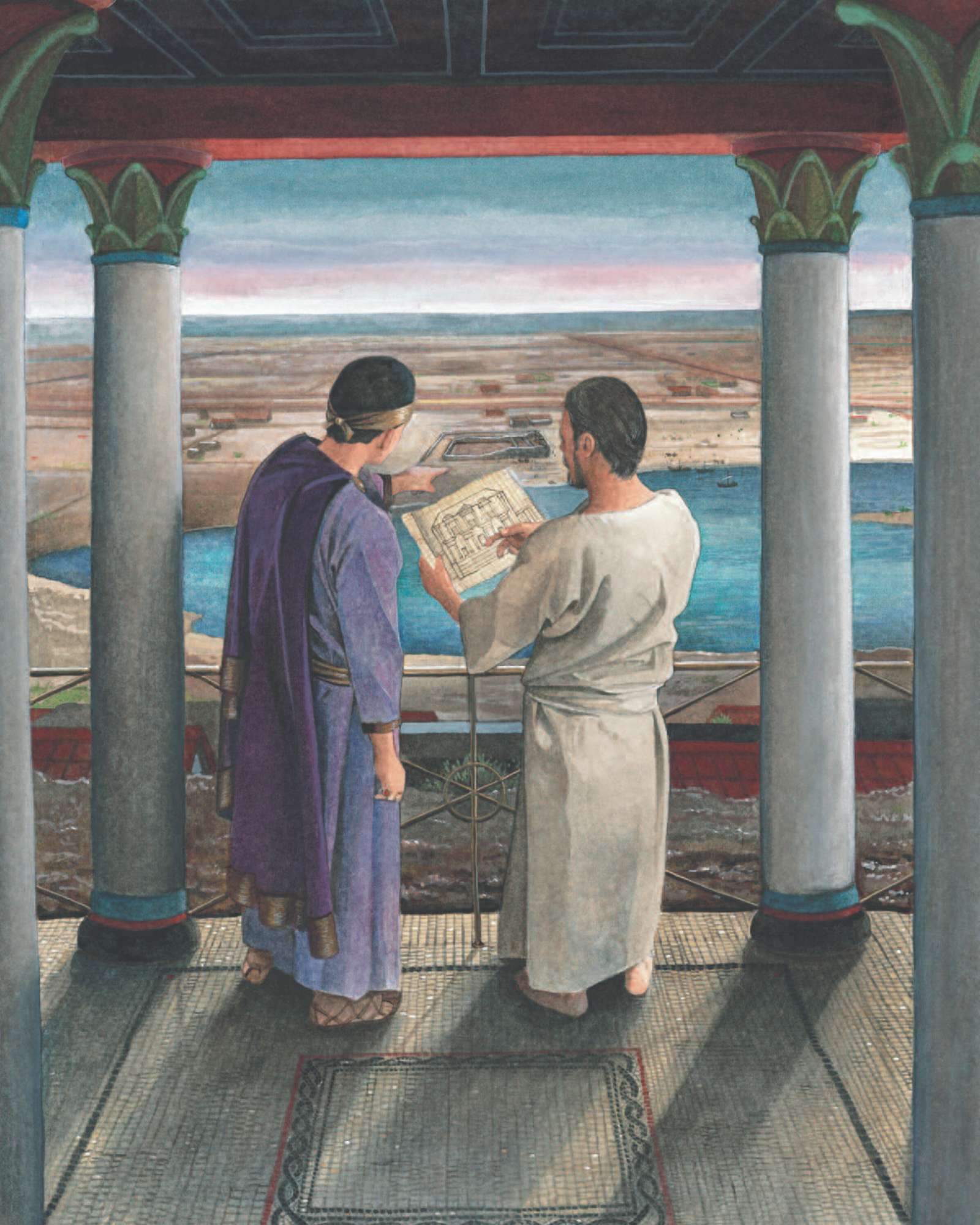
Ptolemy and Demetrius observe the construction of the library.
Perhaps the scholars believed they needed the Muses for inspiration, but for their research they also needed a great library. So Ptolemy and Demetrius built the Library of Alexandria, near the Mouseion and Ptolemy's palace in the Brucheion, the royal quarter of the city, on the edge of the eastern harbor.
The Library of Alexandria was not the first library in the ancient world. For centuries the temples of Egypt had contained libraries of religious writings and records of events. Private libraries in the ancient world were owned by kings and by great men such as the Greek philosophers Plato and Aristotle. The first public library was in the Greek city of Athens.
But the Library of Alexandria was to become greater than any of these. The king owned it, and the scholars of the Mouseion used it for research under his patronage. Residents of Alexandria probably couldn't just walk in and ask for a book. Egyptians, who were treated as second-class residents under the Greek domination of Egypt, probably couldn't have read the Greek books anyway.
The Library continued to grow under the reign of Ptolemy's son and successor, Ptolemy II Philadelphus. But Demetrius wasn't in Alexandria to see his creation flourish. Before Ptolemy died he asked Demetrius for advice on which of his children should succeed him as king of Egypt: his children by his first wife, Eurydice, or his son by his second wife, Berenice. Demetrius chose the children of Eurydice. But Ptolemy didn't take his advice. He chose Philadelphus, his son by Berenice. When Philadelphus became king, he did not forgive Demetrius for the advice he had given his father. He had Demetrius arrested, and banished him from Alexandria.
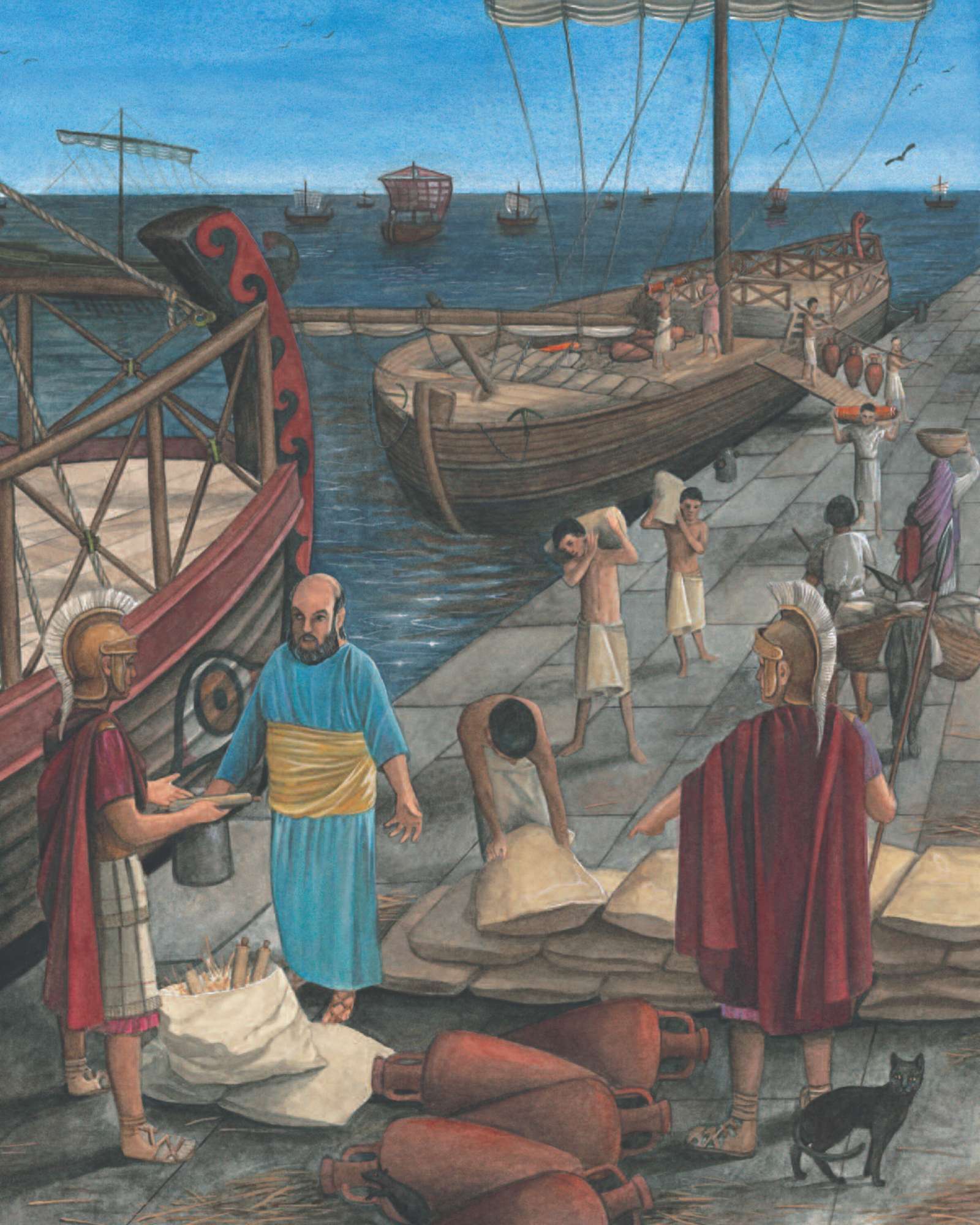
Next page




